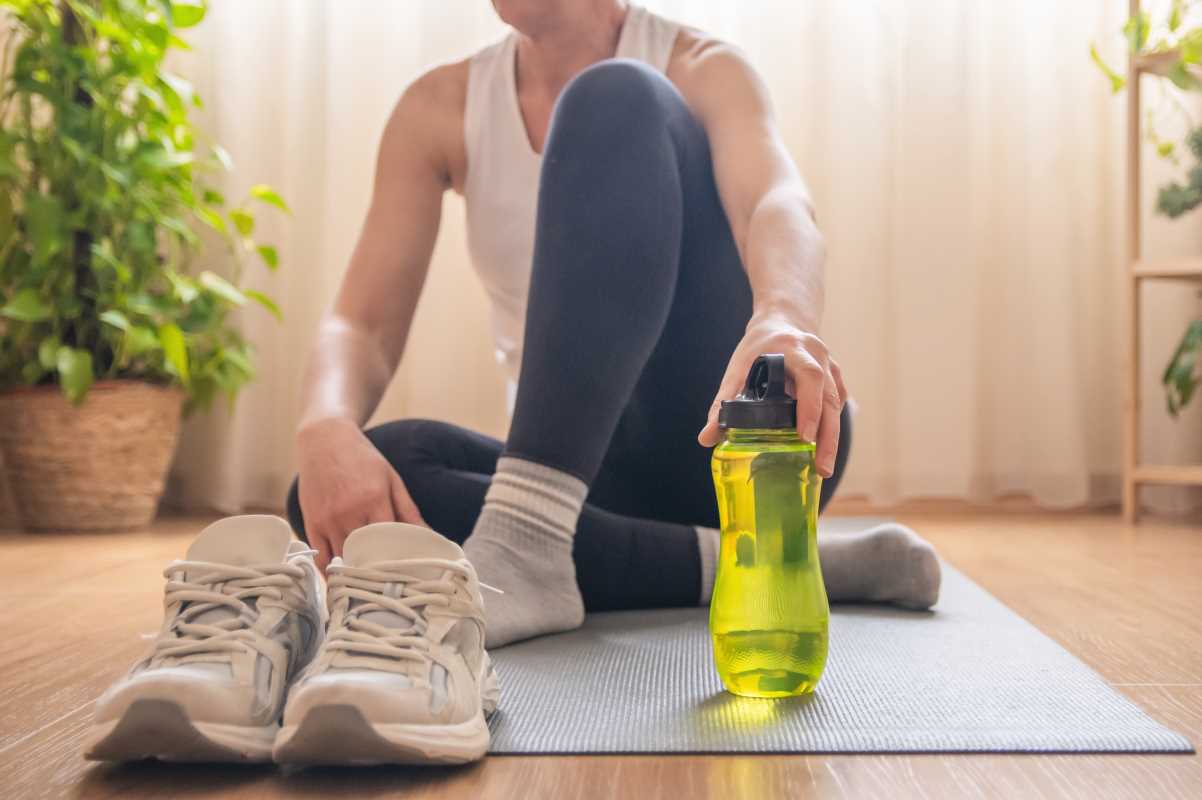Business travel may seem exciting from the outside, filled with the allure of new destinations and important meetings. But for frequent flyers, the reality can be a far cry from glamorous. Navigating long-haul flights, managing jet lag, tackling back-to-back meetings, and adjusting to unfamiliar hotel rooms can heavily strain your physical and mental health. What many business travelers might not realize is how significantly hormones influence how well they cope with the challenges of travel.
Hormones are your body’s internal messengers, impacting sleep, mood, energy levels, and how you manage stress. A business trip’s chaotic schedule can disrupt hormonal balance, sometimes leading to anxiety, irritability, or exhaustion. By understanding how hormones like cortisol, melatonin, serotonin, dopamine, and adrenaline function during stressful travel, you can take proactive steps to maintain mental clarity and emotional balance.
Here’s an expanded look at how hormones impact your well-being during business travel and practical strategies to manage their effects.
The Hormonal Roller Coaster of Business Travel
Your hormones regulate essential body functions that help you stay alert, focused, and emotionally balanced. Unfortunately, factors like irregular sleep, poor diet, and heightened stress can create hormonal imbalances, exacerbating travel-related challenges. Here’s a deeper exploration of how key hormones are affected and practical steps you can take to regain control.
1. Cortisol: The Stress-Orchestrator
Cortisol is your body’s primary stress hormone, responsible for fine-tuning energy release, alertness, and focus when encountering stressors. Whether it’s navigating unexpected schedule delays, preparing for a critical meeting, or rushing through airport security, business travel can lead to persistent spikes in cortisol levels. Over time, these elevated cortisol levels can result in chronic stress symptoms like anxiety, impaired focus, and restlessness.
Managing Cortisol on the Road
- Breathe Deeply: Incorporate 5- to 10-minute deep-breathing exercises throughout your day. Techniques like diaphragmatic breathing can lower cortisol and relax your nervous system.
- Stretch It Out: Yoga or simple stretching routines in your hotel room can combat cortisol buildup. Start your morning with poses like child’s pose or downward dog to release tension.
- Mind Small Wins: Position your agenda to include manageable tasks that lead to small, daily wins. Successfully achieving smaller goals can help curb cortisol levels and boost your sense of accomplishment.
- Rethink Your Caffeine Fix: While coffee might seem like an ally, excess caffeine can spike cortisol, especially on an empty stomach. Opt for herbal teas like chamomile or green tea, which offer calming properties.
2. Melatonin and Your Sleep-Wake Cycle
Melatonin is the hormone that governs your sleep-wake cycle, or circadian rhythm. It’s released in response to darkness, signaling that it’s time for rest. However, business travelers are notoriously plagued by irregular schedules, changing time zones, and inadequate sleep. Jet lag can suppress melatonin production, leaving you groggy, out of sync, and emotionally drained.
Boosting Melatonin Naturally
- Time Your Sun Exposure: Upon arriving at your destination, spend time outdoors during daylight hours. Sunlight exposure realigns your internal body clock to the new time zone, making it easier to sleep at the right time.
- Optimize Your Sleep Space: Pack basics like a sleep mask, earplugs, or noise-canceling headphones to block disturbances. Consider soothing aromatherapy, like lavender oil, to create a calming pre-sleep atmosphere.
- Be Smart About Melatonin Supplements: While these supplements can help reset your sleep cycle after flights, they should be used for short-term relief. Always consult a healthcare professional for guidance on dosage.
Additional Tip:
Combat blue light effects by investing in blue-light-blocking glasses if you need to work on your laptop or use your phone before bed.
3. Serotonin and Dopamine: Fuel for Positivity
Serotonin and dopamine are often referred to as your “feel-good” hormones, critical for maintaining a positive mood, motivation, and emotional elasticity. Unfortunately, stress, long workdays, irregular eating, and inactivity tend to deplete these key hormones during trips.
Ways to Keep Serotonin and Dopamine Levels High
- Reinvigorate with Movement: Exercise boosts both serotonin and dopamine. Even something as simple as a 20-minute jog in the hotel gym or a quick stretching routine can make a remarkable difference.
- Prioritize Nutrient-Rich Foods: Seek meals rich in tryptophan (found in eggs, nuts, fish, and turkey) to support serotonin production. Avoid sugary snacks; while they may give a temporary dopamine surge, they’re followed by energy crashes and mood dips.
- Design Joyful Moments Daily: Whether it’s chatting with a loved one, listening to your favorite podcast, or unraveling a novel you’ve been wanting to read, strategic enjoyment helps replenish your brain’s happy chemicals.
Want to double down on dopamine? Schedule an excursion in your travel destination. A cultural experience or scenic exploration will both reward your brain and anchor you in the moment.
4. Adrenaline and High-Stakes Situations
Famously dubbed the “fight or flight” hormone, adrenaline sharpens your focus and temporarily increases energy under high-stress conditions. It’s what gets you through that nightmare of barely making your connecting flight or acing an impromptu presentation. However, constant adrenaline spikes leave you feeling drained and scatterbrained, a precursor to burnout.
Preventing Adrenaline Fatigue
- Build in Flexibility: Whenever possible, add buffer intervals between meetings or during transit. Padding your schedule reduces trigger-induced adrenaline surges.
- Slow Your Pace Deliberately: While adrenaline drives hyper-efficiency, forcing frequent, slower movements or controlled breaks lets your body reset.
- Meal Planning Against Crashes: Avoid the temptation of sugary energy bars and opt for complex carbohydrates like quinoa or high-protein snacks like almonds. These offer steady energy without sending you into cycles of highs and lows.
Combining mindfulness exercises with pacing strategies allows you to optimally channel adrenaline when you need peak performance without crashing afterward.
Strategic Tips to Support Hormonal Balance While Traveling
Staying hormonally balanced doesn’t require grand sacrifices or excessive micromanaging. Thoughtful habits built into your trip itinerary can help you minimize stress and maximize resilience.
Stick to a Consistent Routine
Consistency may not come naturally while traveling, but striving for familiar patterns with your wake-up time, meal schedule, and bedtime will work wonders for your hormonal stability. For example, set an alarm—even on weekends—for the same early morning start. Plan hotel breakfasts ahead to align with your normal eating routine.
Prepare for Every Scenario
- Healthy Snacks: Pack protein-rich granola bars, nuts, or fresh fruit to tide you over during transit.
- Workout Essentials: Resistance bands are an excellent, portable tool whether you’re stuck in a hotel room or hanging out by the gate at an airport.
- Adaptable Gear: If weather varies between your two locations, layer flexible clothing to minimize discomfort—the physical comfort ties into stress control.
Prioritize Hydration
Jet travel causes rapid dehydration, and mental fog sets in without adequate water intake. Start hydrating at least one day before your flight and bring along your own refillable water bottle for the trip. Add hydration boosts by consuming high-water foods like watermelon, cucumbers, or oranges.
Carve Out Personal Time
Leave room in your schedule to recharge. Even 10 minutes of journaling, meditating, or reflecting can provide a mental detox. If sightseeing forms part of your itinerary, treat it as an energy-boosting escape rather than a chore.
Listen to Your Body
Learn to interpret signs your body sends, like unexplained soreness (which could result from dehydration or prolonged cortisol elevation). Adjust accordingly, whether that’s by stretching, taking supplements, or eating restorative meals. Intuition is often your best guide.
The Bigger Picture
Understanding the link between hormones and mental wellness, especially during business travel, empowers you to improve how you approach trips. Hormones act as the guiding framework for how you process stress, sleep abnormalities, or emotional disruptions during demanding schedules. By focusing on cortisol, melatonin, serotonin, dopamine, and adrenaline, we glimpse the complexities behind mood swings, burnout, or insomnia. Armed with awareness and small, daily strategies to nurture hormonal balance, even intricate travel scenarios become manageable.
 (Image via
(Image via





